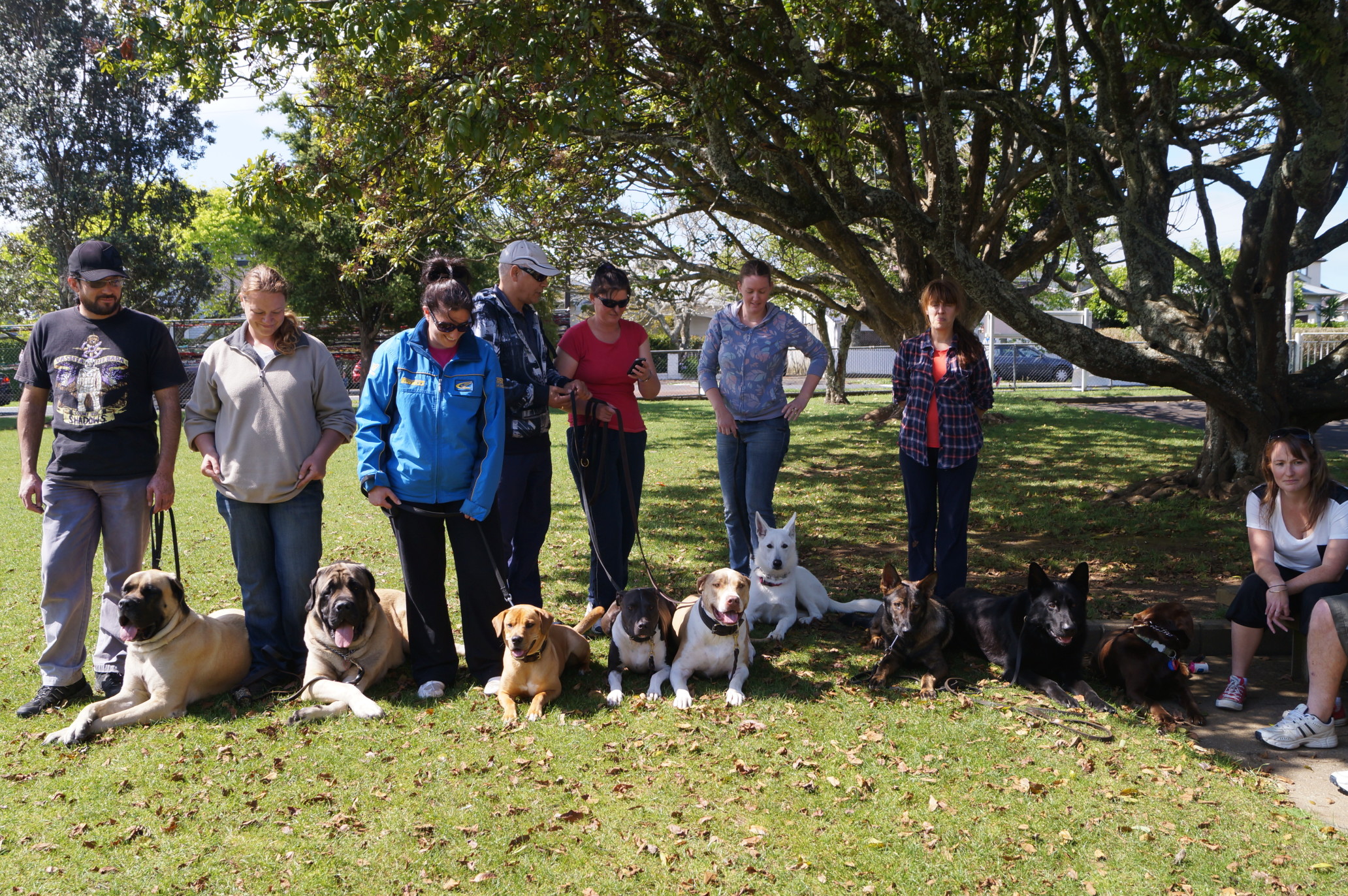At N E K9
All our dog training is followed by appropriately tailored balanced methods. We do not do human psychology.
- We cannot get dogs to lie on the couch and tell us their problems, but we instead use consistency and repetition, with appropriate consequence given with misbehavior.
We believe every action must have a reaction to it, so every misbehavior must be given a consequence.
- Before undesirable behavior is corrected, we must first be certain that it does not steam from confusion about what is being asked.
- Each command, when reinforced is physically reinforced to the dog repetitively and consistently.
- When the dog starts to anticipate the commands, he or she is shown their understanding of what is being asked, and at that point, you can expect the dog to execute the command on the first verbal request.
We believe that to achieve the highest level of dog training with your K9, the whole family must conduct the same training for their dog.
- One of the most important goals of ours is to have the dog and the whole family working together in a consistent and positive manner, this will produce a relaxed and enjoyable dog for your family.
- If the dog is receiving different signals from each family member, the dog will not respond in a proper manner.

N E K9 does not believe in using food to make a dog respond to training, or any form of manipulation to get their attention.
We would like the dog to respond to the owner for who he or she is, not for what he or she has! Once the dog is working for the owner, you will see a very consistently happy working dog.
How do we do it:
Loyalty, Respect, Bond, Control, and Trust!
1. Start training as a puppy
We believe in starting dogs in training young at 3 ½ to 4 months of age.
- When starting to train with a dog at a young age, you are starting with a dog that has hardly had the time to develop bad habits.
- This makes it easier for the dog and owner to work together.
- When starting training with a young dog,
- we believe in using the hands and leash together to place the dog into a command given.
- Once the dog has a full understanding of what we are trying to get them to do, then and only then will we begin to use the leash only for the training of the dog.
- At this point, the hands become an instrument of praise.
- This gives the dog a reason to respond in a positive manner.
When starting dog training at an early age as we suggest, cuts your work time down by half, if not even more compared with starting to train a dog 8 months-1 year old.
Therefore the earlier you start with dog training, the better result you will achieve!

NEK9 stands for – Any Dog for Anything at Any Stage!
2. Loose Leash
- One of the most important beliefs to us at N E K9 is that while in training a dog, the leash should always be loose.
- The reason for having a loose leash is to give the perception to the dog that they are “off leash”. When you get to the later stages of training, (which will be off leash) you will see the positive results from always having worked the dog on a loose leash.
- Remember the leash is used for correction and dog training, not control!
- It’s a tool, and an extension of your arm, your obedience is voice control!
Remember – Obedience is the key foundation to all training.
- Dog Obedience is not just a way to make your dog respond to the command being given, but a way to communicate with your dog.
- Through proper dog obedience training, you will develop respect, thus giving you control.
- That control will enable you to do things with your dog that in most cases, the dog would not have enough trust in you to attempt.
- Without respect, trust, and control, it is impossible to have a true deep bond between you and your canine partner.
- Complete unity is extremely important not only in a service/working dog, but it makes for a much better family pet and companion!!
Final Goals
Our final goal at N E K9 is for your dog to be an enjoyable member of the family, as well as a service/working partner.
How do we reach the goal:
- A dog has a very strong obedience foundation.
- A dog that is very well-mannered,( these 2 things go hand in hand)
- A dog that is obedience trained,
- Keep in mind that a dog who does not have an understanding of how to use obedience in everyday life, will not give you a completely enjoyable family dog or working partner.
Before you start, ask yourself :
1. How should your dog respond to a car ride?
2. If you are out walking your dog, and out of nowhere another dog comes running up and barks at your dog, how should your dog respond?
3. How should your dog react approaching any sort of doorway, be it a car door, or building of some kind?
4. Let’s say you are walking down the street with your dog, and someone comes up to talk to you…how should your dog react?
If your dog is uncomfortable in an environment and does not have enough trust in YOU to relax, how can that dog be expected to work in that environment?
What about in a house? Think of such things as:
1. How should your dog react when the family is sitting down to dinner?
2. How should your dog react when a visitor comes to the front door?
3. If your dog is not comfortable enough to remain in the company of your new visitors, how can you expect him or her to protect you?
4. How does a dog behave around kids and other household animals?
About yourself:
1. Are you ready to sacrifice your life as you know it, turning it upside down to create a happy relationship with your dog?
2. Are you patient and consequent-consistent?
3. Do you get angry often due to small things?
4. Can you invest/ give a dog enough time during the day, that includes daily walks and play time ( they are not the same)?
5. Is the dog just a toy for a kid?
6. Can you keep calm and relaxed in stressful situations?
7. Can you provide the dog with safety inside and outside of the house?
8. Do you have time for dog training?
9. Do you understand that the dog is NOT a kid and must be raised as a dog in order to be happy?
10. When picking your dog base it 90% on what you need and 10% on what it looks like. Keep in mind seeking advice from a skilled trainer would be helpful.
11. What does it mean “ to have a dog” to me?
12. Can I make the dog’s life happy for the next 12-15 years?
13. Do I know myself well enough to provide a stable, reliable home for my dog?
14. If you have kids, do you understand that they might be a danger to your dog and kid -dog behavior must be monitored and guided.
15. Consequences of every interaction ( good or bad) will create behavioral patterns sometimes hard to correct.
16. Dogs DO need good healthcare and Nutrition (human food does not cut it!)
17. Can your kid / suppose commit to having a dog with you, or is it just you? The whole family must be IN for it in order to work.
18. What will you do with a dog when you go on holiday? Or to party? Especially when the dog is a puppy
19. You will lose some furniture, shoes, toys, and other items while training the dog, Are you ready for it?
20. Training does not stop, Ever!
21. Did you talk/read about dogs?
22. You training yourself how to train the dog
These things may seem like minor things, but they are extremely important. There are many more examples where obedience will play a big role in everyday living, and we hope N E K9 training and developmental services can help.
N E K9’s final goal is to have a dog that is enjoyed by every member of the family, where everyone wakes up every day looking forward to having their dog there with them.
Remember we at NEK9 will give you all the tools that you need, & honesty, but 80% of your training will be used and conducted, within your home!
If you are serious about your dog & ready for real training.
Don’t hesitate to contact us NEtime!



